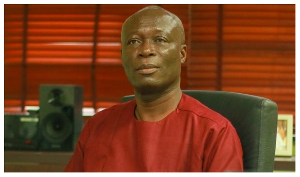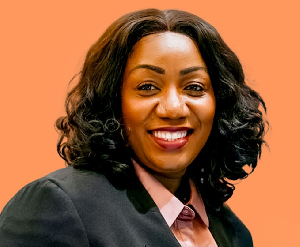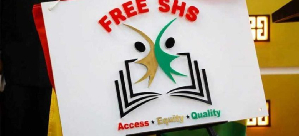Accra, Sept. 1, GNA - The International Fund for Agricultural Development (IFAD) and the Government of Ghana, on Wednesday strengthened their partnership by signing an agreement that will enable IFAD have a permanent office in Ghana.
IFAD is a United Nations multilateral funding agency focusing on improving the lives of the rural poor and it has operated in Ghana over the last 30 years.
Dr Kanayo Felix Nwanze, President of IFAD, signed the agreement on behalf of his organization, while Dr Kwabena Duffuor, Ghana's Minister of Finance and Economic Planning, signed on government's behalf.
Mr Kwasi Ahwoi, Minister of Food and Agriculture witnessed the signing.
Dr Nwanze said the establishment of a Ghana country office provided the government with the opportunity to strengthen its partnership with IFAD and improve the implementation and performance of IFAD supported projects in Ghana.
He expressed satisfaction with how Ghana has implemented IFAD supported programme so far and announced the 60 million-dollar support for the Rural Enterprises Programme, which was expected to cover all the districts in the country.
The Rural Enterprises Programme is a project that seeks to boost entrepreneurship in rural areas; the first phase of the project, which will end next year, was successfully implemented in 65 districts in the country.
Other programmes supported by IFAD are the Northern Region Poverty Reduction Project, The Roots and Tuber Improvement and Marketing Project, the Northern Rural Growth Project and the Rural Agricultural Finance Project.
Dr Nwanze said that it was important that government made agriculture a top-most priority in the country's development agenda and stressed the need to focus on the whole value chain of agriculture and not just food production.
"Focusing on the value chain of agriculture means paying attention not just to growing of food stuffs but also how to add value to the produce and the entire process involved," he explained.
Dr Nwanze, who had earlier toured selected project sites in the Eastern Region, said what he saw on the field meant that Ghana was on track and urged the government to aim at achieving the utmost benefit from agricultural programmes.
"It is not enough to move a farmer from earning one dollar a day to earning two dollars; farmers should be able to earn a decent income that would make their lives more comfortable."
Dr Nwanze expressed concern about the slow rate of disbursement and expressed the hope that the government would increase the rate of disbursement to make agriculture more efficient.
He advised government to channel the expected oil revenue into building infrastructure and the development of the agricultural industry.
Dr Duffuor assured the IFAD president that government would use the oil revenue to develop other sectors of the economy.
"With the exploration of oil in commercial quantities, other sectors like the agricultural sector should even grow bigger, government intends to make the oil a blessing for the country and not a curse," he said.
Dr Duffuor noted that gains made in the country's economy could be credited to the agriculture sector and said the sector created more jobs for the youth than other sectors.
General News of Wednesday, 1 September 2010
Source: GNA
















